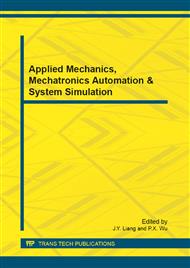p.1447
p.1452
p.1457
p.1462
p.1469
p.1475
p.1481
p.1487
p.1493
Research on PageRank Algorithm to Index Pages
Abstract:
PageRank algorithm is a vital method to determine the importance of pages. Useful as it is, the algorithm has many disadvantages. Therefore, we arrive at the conclusion that it’s not rational to calculate the importance degree of pages simply by links between them. Considering the timeliness problem of PageRank algorithm, we provide the time penalty factor W(n) to weigh the effects of update time on page ranking. After adding the time penalty factor to the original PageRank algorithm, we come up with the refined PageRank algorithm. Our algorithm is superior compared with the original one and many other existing methods that weigh the effects of update time. We judge update time by the times a page is crawled by Web crawlers. Consequently, drawbacks of the methods that use the real time to measure update time can be overcome and the order of pages can meet users’ need better.
Info:
Periodical:
Pages:
1469-1474
Citation:
Online since:
September 2012
Authors:
Keywords:
Price:
Сopyright:
© 2012 Trans Tech Publications Ltd. All Rights Reserved
Share:
Citation:


